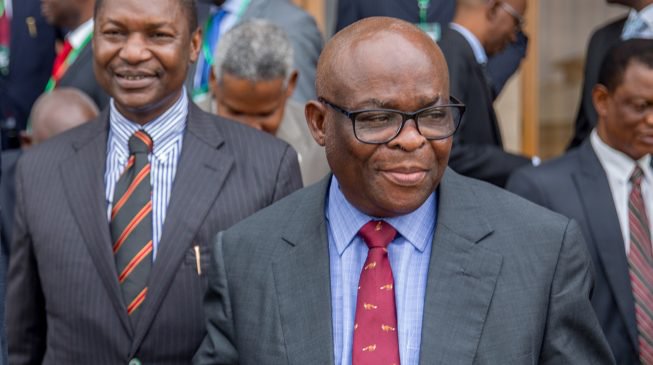Godwin Tsa, Abuja
The Code of Conduct Tribunal (CCT) has reserved ruling on the two applications brought before it by the suspended Chief Justice of Nigeria (CJN), Justice Walter Onnoghen, to the day of its final judgement on his case.
In the first application, Justice Onnoghen asked the CCT to quash the six-count charge against him and allow the National Judicial Council (NJC) to deal with the issue.
Onnoghen, in his second application, asked the chairman of the tribunal, Danladi Umar, and another member of the tribunal to recuse themselves from his trial on alleged likelihood of bias.
However, Umar, in his ruling, ordered that ruling on the two applications would be delivered alongside the final judgement.
Umar, who said the tribunal was determined to hear the case expeditiously, relied on the provisions of Section 296 of the Administration of Criminal Justice Act (ACJA), 2015, which permits rulings on interlocutory objections to be given alongside the final judgement.
The Federal Government had alleged that Onnoghen failed to declare his assets as prescribed by law, and maintained foreign bank accounts.
When the trial resumed yesterday, Onnoghen, who made his second appearance before the tribunal, expressed fears that he could not get fair hearing by the tribunal, being an appendage of the Presidency.
Onnoghen canvassed his arguments through his team of lawyers, made up of Chief Adegboyega Awomolo (SAN), Chief Chris Uche (SAN), Sabastine Hon (SAN) and Edward Ashiakaa (SAN).
Awomolo, who led Onnoghen’s defence team, insisted that his client was entitled to fair hearing by an independent and impartial tribunal, under Section 36(1) of the 1999 Constitution, as amended.
He argued that it was against the tenets of fair hearing to be an accuser and the judge in your own case.
Awomolo explained that the Code of Conduct Bureau (CCB), which recommended Onnoghen’s trial, the Attorney-General of the Federation, who is prosecuting him, and the tribunal itself are all answerable to the executive arm of government.
“It is our position that the principle of natural justice, equity and good conscience requires that the defendant’s right to fair hearing deserves a thorough examination by this tribunal,” Awomolo said.

